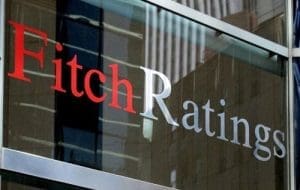Appetite for T-Bills plunges despite auction oversubscription

Despite registering an oversubscription at its latest Treasury bill auction, investor demand for Ghana’s short-term government securities has declined steeply, highlighting shifting market dynamics as yields continue to fall.
According to data from the Ghana Fixed Income Market (GFIM), total bids submitted in the most recent auction dropped to GH₵6.79 billion, a significant fall from the GH₵ 28.1 billion recorded the previous week — a more than 75% plunge in investor demand.
The government’s target for the auction was GH₵ 3.86 billion, but the GH₵ 6.79 billion in bids received meant the offer was oversubscribed by 75.86%.
Yields decline across all tenors
The reduced demand coincided with a continued drop in interest rates across all maturities.
The yield on the 91-day Treasury bill dropped by 54 basis points, settling at 10.29%.
The 182-day bill saw a sharper drop of 87 basis points, closing at 12.36%, while the 364-day bill saw the steepest decline, shedding 106 basis points to end at 13.25%.
In terms of acceptance rates, 88.78% of the bids for the 91-day bill were accepted, alongside 71.21% for the 182-day and 44.34% for the 364-day.
The declining yields suggest a moderation in short-term borrowing costs for the government but may also signal caution among investors amid evolving macroeconomic expectations.
Secondary market sees uptick in trading
On the secondary market, activity on the Ghana Fixed Income Market rose by 8.8%, with weekly volumes reaching GH₵4.6 billion.
New Government of Ghana (GoG) Notes and Bonds accounted for the largest portion of trades at 44.15%, followed closely by Treasury bills at 43.75%. Corporate bonds made up 4.28%, while Sell Buy Back trades contributed 7.80% of market activity.
The increased trading volumes suggest that while appetite for new T-bill issuances may be moderating, overall activity in fixed-income instruments remains vibrant, especially for medium- to long-term government securities.
Cedi mixed as Dollar gains slightly
On the currency front, the Ghanaian cedi showed mixed performance against major trading currencies during the week.
It depreciated by 0.48% against the US dollar, ending at GH₵10.50 to the Dollar, but continued to make gains against the British pound and the euro.
The cedi appreciated by 0.85% against the pound, closing at GH₵ 13.9062, and by 1.10% against the euro, settling at GH₵ 12.1166.
Year-to-date, the local currency has appreciated 40% against the dollar, 32.32% against the pound, and 25.56% against the euro, based on interbank midrates from the Bank of Ghana.
Indicative mid-market rates on the open market showed the cedi closing at GH₵10.58 to the Dollar, GH₵ 14.26 against the British Pound, and GH₵12.30/EUR, reflecting marginal variations between official and retail market pricing.
Stock market posts strong gains
The Ghana Stock Exchange (GSE) closed the week on a strong note, with the GSE Composite Index rising by 4.82% to end at 6,994.45 points, delivering a year-to-date return of 43.08%.
The surge was driven by notable gains in financial and telecom stocks, led by Republic Bank (Ghana) Ltd (RBGH), which rose 12.90% to close at GH₵1.05 (YTD: 59.09%), and Clydestone Ghana Ltd (CLYD), which advanced 11.11% to GH₵0.10 (YTD: 233.33%).
Other top performers included MTN Ghana, up 9.23% to GH₵3.55 (YTD: 42.00%), Fan Milk Ltd, up 3.53% to GH₵4.40, and Cal Bank, up 1.89% to GH₵0.54. Gains were also recorded in Societe Generale Ghana, GOIL, GCB Bank, and Ecobank Ghana, all contributing to the bullish performance.
Selected Decliners and Market Activity
On the flip side, Access Bank Ghana PLC slipped marginally by 0.06% to GH₵16.38, while NewGold ETF (GLD) fell 3.26%, Total Petroleum Ghana dropped 3.97%, SIC Insurance dipped 7.08%, and Intravenous Infusions Ltd (IIL) plunged 20.00%, ending at GH₵1.97 (YTD: -20.00%).
Market activity surged during the week, with volume traded increasing by 71.09% from 35.5 million to 60.8 million shares, and the total value of trades hitting GH₵275 million.
Looking ahead, analysts expect continued momentum in the financial and ICT sectors, positioning them as key drivers of market performance in the coming weeks.
While investor appetite for T-bills appears to be softening amid falling yields, the broader capital markets remain active.
The cedi’s resilience and the strong performance on the stock market suggest underlying confidence in the economy — though all eyes will remain on inflation, fiscal developments, and the government’s evolving financing strategy.


